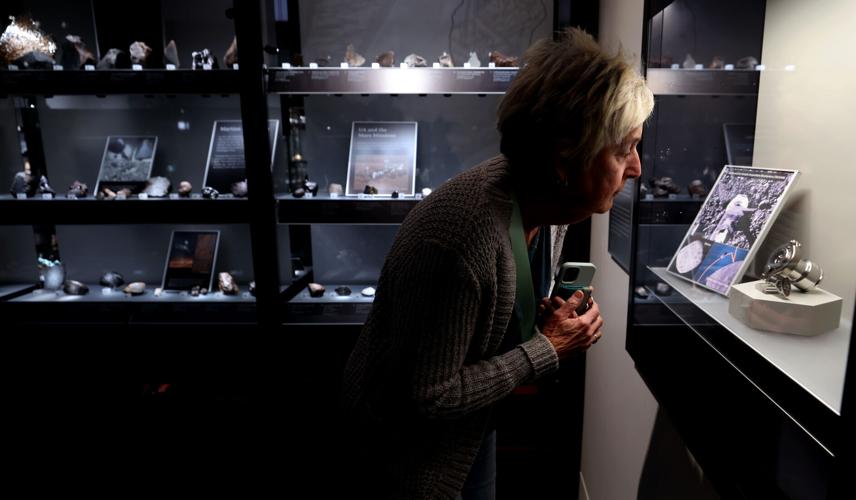A Tucson-born space robot has officially joined the ranks of such aviation legends as Orville Wright, Chuck Yeager and the crew of Apollo 11.
The National Aeronautic Association awarded its 2023 Robert J. Collier Trophy to the University of Arizona, Lockheed Martin and NASA for the successful completion of the OSIRIS-REx asteroid sampling mission last year.
The prestigious, 112-year-old award recognizes “the greatest achievement in aeronautics or astronautics in America, with respect to improving the performance, efficiency, and safety of air or space vehicles.”
This is the second straight year the Collier Trophy has gone to a space mission with Tucson ties. The 2022 award was won by the James Webb Space Telescope team, which includes a number of U of A scientists and engineers.
Since 1905, the National Aeronautic Association has served as the official record keeper for aviation achievements in the U.S.
The list of Collier recipients doubles as a timeline for some of the greatest advancements in aerospace history. Orville Wright won the award in 1913. Yeager won it in 1947. And in 2021, a team from NASA’s Jet Propulsion Laboratory took home the prize for Ingenuity, the robotic helicopter that flew through the skies over Mars.
“It’s an awesome crowd to be affiliated with,” said U of A Regents Professor Dante Lauretta, principal investigator for OSIRIS-REx, in a written statement. “It hammers home the magnitude of the accomplishment. I always understood we were doing something important, but it shows the recognition the country and world is bestowing upon us.”
On Sept. 24, the U of A-led OSIRIS-REx mission safely delivered a capsule filled with 4.29 ounces of rocks and dust from the asteroid Bennu, roughly twice the amount required by NASA.
It marked the first successful asteroid sampling mission in U.S. history and the largest batch of material to be brought back from space since the Apollo program.
The $1.2 billion mission wrapped up on time and $55 million under budget, Lauretta says.
Scientists in Tucson and elsewhere will spend years — perhaps generations — studying the precious bits of Bennu for clues about the formation of the solar system and the origins of life on Earth.
One of the pebbles is now on public display at the U of A’s Alfie Norville Gem & Mineral Museum in downtown Tucson.
This video from 2011 celebrates 100 years of the Robert J. Collier Trophy, an annual award from the National Aeronautic Association recognizing "the greatest achievement in aeronautics or astronautics in America."





